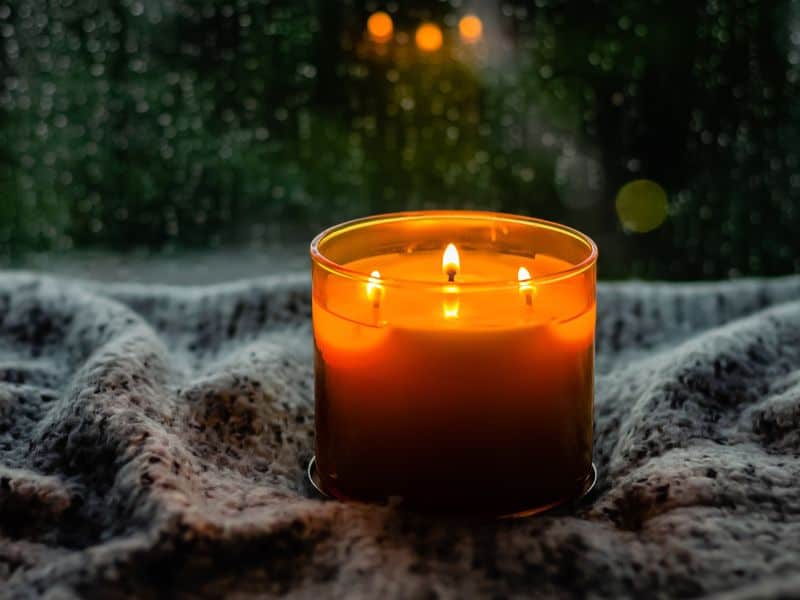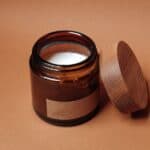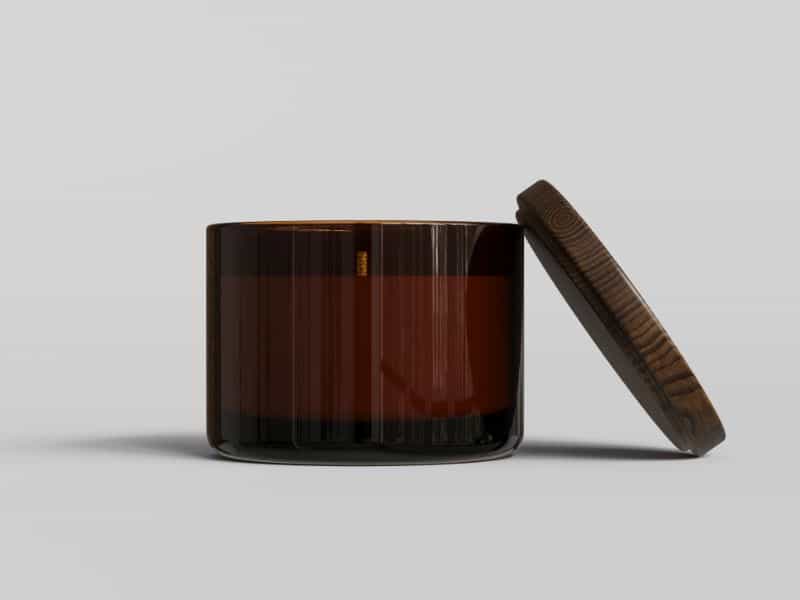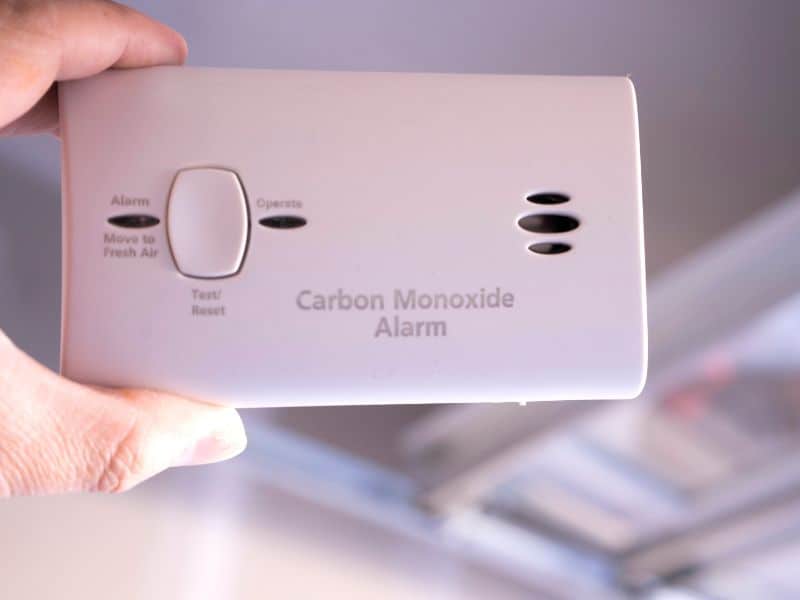Have you ever lit a candle and noticed it making popping or crackling noises? If so, don’t worry—you are not alone! This phenomenon is actually quite common, and understanding why it happens can help you enjoy your candles without interruption by unexpected noises. In this blog post, we’ll explore why candles pop and crackle when burning, as well as how to prevent these sounds from occurring in the future.
Candles can pop and crackle due to air pockets or moisture within the wax, low-quality wicks, excessive fragrance or essential oil content, or excessively large candle size, which can cause irregular and uneven burning.
The good news is some of these problems can be prevented and even fixed. The key to preventing popping and crackling is wick maintenance. Make sure your wicks are trimmed to the correct length pre-use, as well as post-use. This will help keep the flame burning evenly and brightly, avoiding any air pockets that may form within the wax.
Let’s take a closer look.
Causes of Popping and Crackling Candles
Popping and crackling in candles can be caused by several different issues. Let’s take a look.
Air pockets within the wax
When the wax cools, air pockets may form inside the candle. As the candle burns, the heat may cause the air pockets to expand and burst, resulting in popping and crackling sounds. This can be caused by the type of wax, the temperature of the pour, or stirring the wax too vigorously when pouring.
Moisture in the wick or wax
Moisture can seep into the candle’s wick or wax, causing popping and crackling as the moisture evaporates and produces steam. You may run in to this problem if you keep candles near your sink or in the bathroom or anywhere the wick may draw moisture.
Low-quality wicks
Poor-quality wicks may not be able to handle the heat and burn unevenly, leading to popping and crackling sounds. Always make sure you buy your candle-making supplies from a reputable candle-making supplier such as candlescience or candlewic.
High fragrance or essential oil content
Candles with a high concentration of fragrance or essential oils can create excessive heat, causing the wax to bubble and produce popping and crackling sounds. More fragrance oil is not always a good thing and it is completely possible to overdo it when adding fragrance to candles.
Try not to go over the suggested load percentages for the wax and fragrance oils you are using.
Excessively large candle size
Candles that are too large can produce excessive heat, leading to uneven and irregular burning and causing popping and crackling. This is something to look out for when creating candles that are over 4 inches in diameter.
Faulty Manufacturing
A candle made with the wrong type of wax and wick combination or a candle made with a wick that does not fit it can also cause problems with popping and crackling. Sadly there is not a lot you can do when it comes to this problem other than making sure you do not buy that brand of candle again.
Risks Associated with Popping and Crackling Candles
Outside of the annoyance, some actual risks could be associated with your candle popping and crackling. Let’s take a look.
Fire hazards
Popping and crackling candles can create sparks that may ignite nearby objects, such as curtains or paper, causing a fire hazard. This risk is particularly high if the candle is placed near flammable materials or left unattended.
To prevent fire hazards, make sure to never leave a candle unattended and keep it away from flammable objects. Always extinguish the candle before leaving the room or going to bed.
Indoor air pollution
Indoor air pollution: Candles that produce black smoke or soot may release harmful chemicals into the air, such as benzene, lead, and toluene. When inhaled, these chemicals can irritate the lungs and lead to respiratory problems.
To prevent indoor air pollution, choose high-quality candles made with natural waxes, such as soy or beeswax, and avoid candles with additives or dyes. Trim the wick regularly to prevent soot buildup, and burn candles in a well-ventilated area.
Risk of injury
Popping and crackling candles can sometimes splatter hot wax, posing a risk of injury. The popping and crackling sounds can also startle people or pets, causing them to knock over the candle.
To prevent the risk of injury, always place the candle on a stable and heat-resistant surface, away from the reach of children and pets. Never touch or move a burning candle, and make sure to use candle holders designed for the specific candle size and shape.
Preventing Popping and Crackling Candles
Now the part we’ve all been waiting for… How to prevent these popping and crackling issues from happening to start with.
Choosing high-quality candles with natural wicks
Avoid low-quality candles made with synthetic wicks or additives that can cause excessive popping and crackling. Choose candles made with natural waxes, such as soy or beeswax, and natural wicks, such as cotton or hemp.
Keeping candles away from drafty areas
Drafts can cause candles to burn unevenly and create air pockets that lead to popping and crackling. Keep candles away from open windows, doors, or air conditioning vents. Try moving your candles around the room until you find the ideal place for them where the wick does not flicker or make any noise while burning.
Trimming the wick before burning
Trim the wick to 1/4 inch before lighting the candle to prevent excessive popping and crackling. A longer wick can create air pockets that lead to uneven burning and excessive noise. You would be surprised by how many candle burn problems are caused by poor maintenance or improper burning procedures.
Storing candles properly to prevent moisture exposure
Moisture in the wax or wick can cause popping and crackling during use. Store candles in a cool, dry place away from humidity and moisture exposure. If your candle has a lid make sure you put it on when the candle cools and never leave it off for extended periods of time.
A candle lid will help keep out dust, hair, bugs, and other things that can cause your candle flame to pop, crackle, flicker, or smoke. Candle lids are a MUST!
Avoiding excessively large candles
Large candles can create more heat, which can lead to popping and crackling. Stick to smaller candles and avoid excessively large candles that can create an uneven burn and excessive noise. One solution to this problem on larger candles is using multiple candle wicks that can help heat the candle surface more evenly.
Wipe Off The Top of The Candle Before Using
Simply wiping off the top of the candle before using it can remove a lot of the dust and debris that settles onto the surface of your candle. When you remove this dirt it helps make sure that your candle wax will stay clean and that the wax drawn up the wick will not clog or cause problems.
Frequently Asked Questions
Your candle may have popped when you lit it due to excessive moisture in the wax or wick, a drafty area, an overly large candle size, or a low-quality wick or wax. Make sure to store your candles in a cool, dry place, and choose high-quality candles.
Candles can sometimes pop due to air pockets in the wax or wick, but this should not occur frequently. If your candle is popping and crackling frequently, it may be due to a low-quality candle or improper storage.
Yes, popping candles can pose a risk of fire or injury. Make sure to keep the candle away from flammable objects and never leave it unattended. Trim the wick before each use, and burn candles in a well-ventilated area to reduce the risk of fire or injury.
Candles can crackle due to air pockets in the wax or wick, an excessively large candle size, a drafty area, or low-quality wax or wick. Make sure to choose high-quality candles with natural wicks, store them in a cool, dry place, and trim the wick before each use.
Conclusion
In conclusion, popping and crackling candles can be annoying, but they can also pose serious risks including fire hazards, indoor air pollution, and injury. To prevent these issues, choose high-quality candles made with natural waxes and wicks, keep them away from drafty areas, trim the wick before burning, store them properly to prevent moisture exposure, and avoid excessively large candles. With the right knowledge and precautions, you can enjoy your candle safely and without the hassle of popping and crackling.






